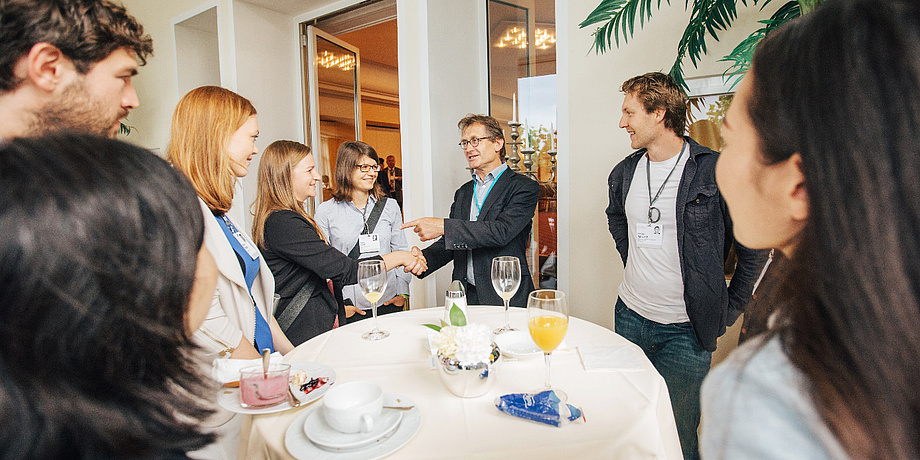Application in stages
The two-stage application for this event began in September of the previous year. In the applications, weight was given to previous publications and conference contributions, recommendations from professors, teaching experience and extra-curricular activities. On top of this, a special commitment to one’s own area is expected. After that, we were nominated for the Meeting by the Austrian Academy of Sciences, and finally reviewed and selected by the committee in Lindau. My motivation for applying for the Meeting was above all else the opportunity to get to know people behind all these ingenious discoveries. I wanted to find out what motivated all our scientific role models, what drives them forward, and what they want to pass on to us young researchers.My motivation for applying for the Meeting was above all else the opportunity to get to know people behind all these ingenious discoveries.
Courage to conduct research
At the conference itself I had the feeling that it was exactly this exchange that was important for the Nobel prizewinners. These world famous scientists often used their lectures not only to present their outstanding discoveries or current research, but also to encourage us to stay with our research even when we meet resistance. After all, a few of these highly respected scientists – for instance, the Nobel laureates Stefan Hell and Daniel Shechtman – had had exactly this experience. Also, the Nobel prizewinners were in constant conversation with the young scientists between talks in order to be able to pass on their experience and discuss ideas. At the Science Breakfast organised by the Federal Ministry of Science, Research and Economy I was able to talk with Ben Feringa, the 2016 Chemistry Nobel prizewinner, about daily life at university.These world famous scientists often used their lectures to encourage us to stay with our research even when we meet resistance.
Responsibility for facts
Our responsibility as young scientists was at centre stage of this event.Especially in this post-fact era, in which Facebook and Twitter are regarded as main sources of information, it is our task to provide clarity.
In his opening speech, Steven Chu pointed out the dangers of climate change and that its longterm effects lie in our hands. Especially in this post-fact era, in which Facebook and Twitter are regarded as main sources of information, it is our task to provide clarity. This message could be strongly felt during the whole conference.Other experience
Scientific matters apart, establishing contacts was also on the agenda. At various get-togethers and evening dinners we had the opportunity to get to know other young scientists in a relaxed and informal atmosphere and to exchange information and stories. And it always astounded me how easily the various persons from completely different cultures and societies could make themselves understood through the one thing they have in common: science – in this case chemistry.On one of these evenings the opportunity came up during a long talk by Helga Nowotny – the president of the European Research Council Forum Austria – to get tips for the next scholarship application. When they sat down at our table at the Bavarian evening, we were able to get to know Ei-ichi Negishi, the 2010 Chemistry Nobel prizewinner, and his family more privately.
It was a unique honour to be present at the Nobel Laureate Meeting in Lindau. Not only was I touched by the inspiring and charismatic demeanour of the Nobel prizewinners, the meeting was also an opportunity to establish irreplaceable international contacts.
The meeting was also an opportunity to establish irreplaceable international contacts.
